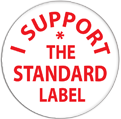Project VRM is tackling public radio–or more broadly public media–as its first concrete initiative. Put simply, the goal is to double the public contribution to public media in the United States.
Thanks for making such a fantastic audiobook, by the way!
-AnnaI’m glad you liked it!
I don’t mind at all. The disks have to go back to the library because someone else may need them, but I can’t see why you need to have the object in your possession in order to listen to it, whether it’s an MP3 CD or an Audio CD version of the audio book — you aren’t stopping someone else from listening to it. Again, I’d rather that you didn’t pass on your copy to anyone. And I’d like it if the US signed up for PLR. But listen away…
Of course, the libraries have already paid for the audiobook, so Neil and his publisher already were paid once, yet I appreciate his view of fair use as I sense many out there might disagree. But it was the link to PLR that caught my attention.
It turns out that the PLR pays authors based on the lending popularity of their books. So, when people borrow a book in the UK from a public library, it is free, and yet the author and publisher get a small amount of compensation each time it is borrowed.
It is an intriguing approach for how to support authors when their work is freely accessible through public resources. In the UK, this is the result of a 1979 law and state funding–and is a completely separate legal right from copyright–so we probably won’t be seeing it in other countries any time soon. However, I think the structural options might provide some inspiration or guidance to the VRM Public Media initiative. The goal is to make it super easy for individuals to support the programs they like without incurring the overhead and hassle of becoming “members” and enduring fundraising marathons.
Now, of course, radios in the US don’t provide integrated tracking of what we listen to–and I can already hear privacy advocates aiming their well-intended attacks–but VRM could offer a voluntary route for users to say “I like this. Let me pay a little something.” Keeping it voluntary and tied to the actual media being consumed shifts the dynamic from one of tracking everything to tracking the support from people and finding a way to turn that into cash, kudos, or more airtime for the artists/producers. Adding this functionality to real-world radios will take some time, but radio-enabled cell phones already look promising. And adding it to online music software is arguably even easier, once we figure out the right protocols.
This Monday, Doc will be rallying troops again at the Berkman center for a discussion on VRM in the morning, then Public Media & VRM starting around 1pm. I won’t be able to make it, but I look forward to reports from the field.

